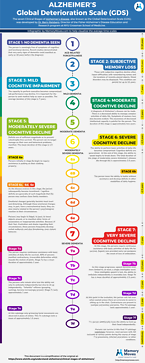, that's a complex question, and I hear your curiosity and your urgency. I did a little research, and am going to share what I have found.
A lumbar puncture can show A beta (Amyloid Beta Protein), which can be an indicator of dementia. a lowered level can point to A beta being trapped in plaques in the brain.
Your doctor is right, current knowledge shows an increase in the development of dementia in people with bi-polar, but some doctors think there is more study needed: https://www.medicalnewstoday.com/articles/bipolar-and-dementia
https://www.ncbi.nlm.nih.gov/pmc/articles/PMC5019473/
https://www.ncbi.nlm.nih.gov/pmc/articles/PMC5365367/
Diagnosing dementia is complex, and is considered a diagnosis of exclusion - meaning, they find out what it's not before they find out what it is.
Not all dementia is Alzheimer's Disease. You can find out more about different types of dementia here:
https://www.nia.nih.gov/health/alzheimers-and-dementia/understanding-different-types-dementia
https://www.alz.org/alzheimers-dementia/what-is-dementia/types-of-dementia
These articles talk about diagnosis:
https://alzheimersdisease.net/research-studies/diagnosis-blood-test
https://alzheimersdisease.net/diagnosis
https://alzheimersdisease.net/living/not-right-diagnosis
This article shows some of the tests you can expect or request:
https://www.alz.org/alzheimers-dementia/diagnosis/medical_tests#:~:text=Physicians%20use%20diagnostic%20tools%20combined,to%20make%20an%20accurate%20diagnosis.
The last question, well I think we all wish we could answer that. I can conceive of no ethical or moral reason for not aggressively
pursuing answers to keep us whole, happy, and healthy. The emotional implications, in my experience, are devastating. That's why I think what
we do here is so important - sharing information, honesty, personal experience, and always support.
I hope these help answer some of your questions and maybe some questions that you hadn't thought of to bring to your doctor. Hold him to an unwavering standard of honesty. And please know that we're always here to share information and support. - Warmly, Donna (Alzheimersdisease.net Team Member)

